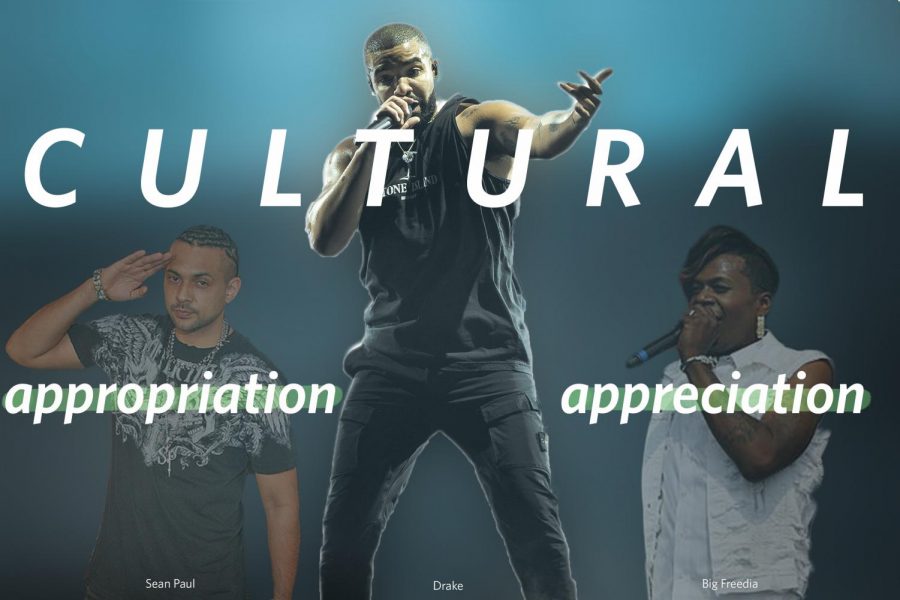Drake toes line between cultural appropriation and appreciation
Apr 12, 2018
Drake is under fire yet again this week following the release of his new single, “Nice for What.” The song, which has already gained 10 million plays on Apple Music within the first 24 hours, resembles New Orleans “bounce music,” the latest cultural music style that’s caught the Canadian rapper’s attention. The single features Big Freedia, a New Orleans musician who has been at the forefront of popularizing bounce music since the ’90s.
Drake has become one of the most listened to and followed artists of the decade. He rose to fame under the tutelage of the legendary Lil Wayne; however, the Toronto-born rapper achieved international recognition due to his Grammy award-winning album, “Take Care,” in 2011.
Drake has, arguably, become a cliche. There’s no cult following or niche market when your audience is worldwide. When appealing to such a large audience, it’s easy to maneuver through different genres and integrate different styles. However, Drake’s use of these different cultural styles placed him into some hot water as he blurs the line between appreciation and appropriation.
For years, Drake has mimicked the musical styles of influencers from around the world. From sampling Jamaican DJ Popcaan to featuring British rapper Skepta, Drake has incorporated icons into his music for the past couple of albums. He mimics their musical style and, every once in a while, he’ll attempt to speak in Jamaican Patois or include some British slang. Not only does he display the music styles, but also their cultures. This emphasis on bringing in a variety of styles has people questioning which culture Drake is going to adopt next.
Jamaican dancehall rapper Sean Paul took a stand against Drake’s then-adoption of dancehall music for his 2016 song, “One Dance.” Paul, frustrated with the lack of accolades Drake gave to dancehall artists, said, “… artists come and do dancehall-oriented music, but don’t credit where dancehall came from, and they don’t necessarily understand it.”
Get The Daily Illini in your inbox!
Big Freedia herself had some thoughts about the exposure bounce music was getting as well.
“We’re steadily moving forward to get the bounce culture even further out there and, as you can see, other artists are recognizing our music and our talent down here in New Orleans,” Freedia said. However, Freedia explained that ensuring artists are given “proper recognition and proper credit” remains a priority.
Can we expect there to be an influx of bounce music and an open acceptance of the music style across genres because of Drake? Is Drake paying homage to these styles and the musicians before him? Or is he slyly lying by omission when claiming the music styles as his own and not directly attributing his success to the other authentic artists?
There is, at times, a fine distinction between cultural appreciation and appropriation. There are millions of people listening to any of Drake’s songs who won’t fully grasp the craft and history behind the styles mimicked. Instead, they attribute the success not to the people that started this music, but to Drake himself.
Whether or not putting these styles on the map within mainstream music is worth it, emphasizing recognition and attribution is always an important part of cultural exchange and global promotion.
Isaiah is a sophomore in Media.






